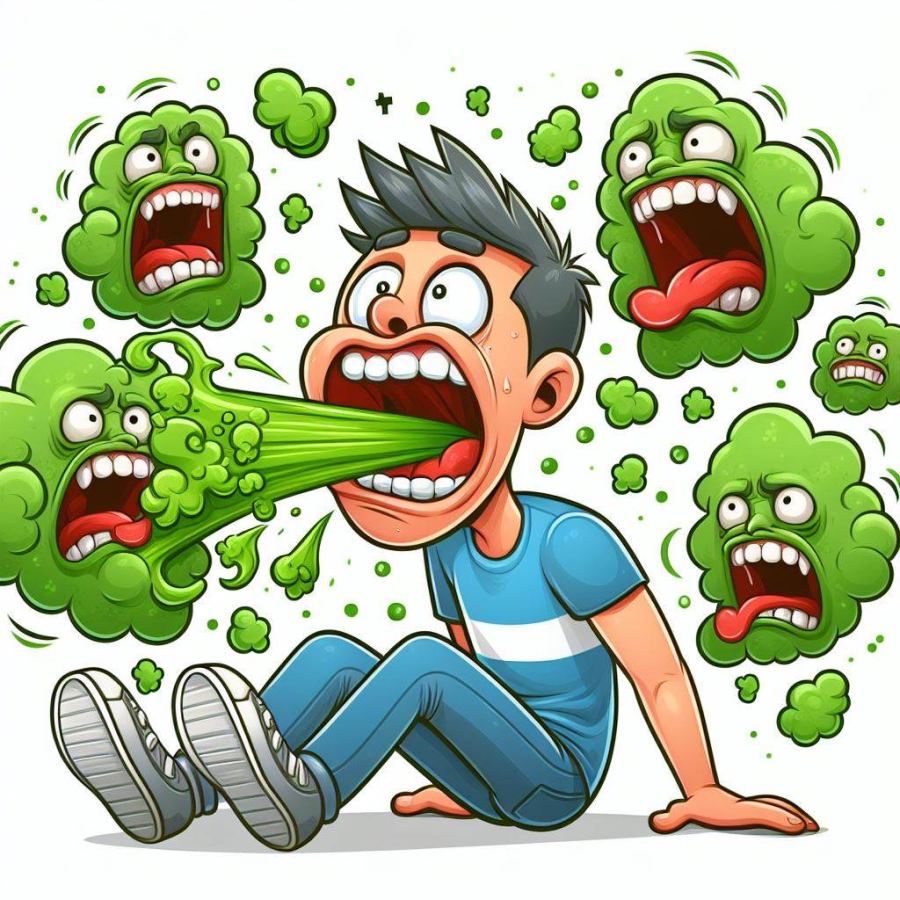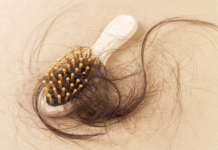Some medical conditions that cause bad breath
Due to oral disease
Bad breath can be the result of many oral health problems, with tooth decay and gum disease being the most common causes. It can also stem from poor oral hygiene, a dry mouth, or mouth sores, all of which can cause an unpleasant smell.
On the other hand, dry mouth is common in older adults as the amount of saliva decreases, reducing the mouth’s ability to cleanse itself and remove odor-causing bacteria. In addition, a deficiency in B vitamins can also cause mouth sores, making breath unpleasant.
Due to respiratory problems
Respiratory problems such as acute or chronic sinusitis and odontogenic sinusitis are also causes of bad breath. Other conditions such as nasal polyps, tumors, or papillomas in the sinuses can also be the cause of bad breath.

Respiratory problems cause bad breath
Due to gastrointestinal problems
Digestive problems can also cause bad breath, so special attention should be paid to them. Specifically, conditions such as gastroesophageal reflux disease and Helicobacter pylori infection, along with a feeling of fullness, can make breath smell bad.
Acid reflux from the stomach into the esophagus not only causes an unpleasant smell but also a sour taste in the mouth. Flatulence causes hiccups that can release odorous air from the stomach through the mouth. In addition, HP infection, often associated with poor lifestyle and diet or due to infection, also contributes to the problem of bad breath.
Due to Diabetes
People with diabetes are more likely to experience bad breath because the increased amount of sugar in the blood creates favorable conditions for bacteria to grow, and can also cause oral problems such as gingivitis and tooth decay, which are the cause of bad breath. In addition, the metabolism of glucose in the blood can produce a specific odor, like the smell of rotten apples or acetone like the smell of nail polish, making it difficult to overcome bad breath. The most effective way to improve this condition is to maintain stable blood sugar levels.
Due to kidney failure
People with chronic kidney disease often suffer from breath that smells like rotten fish. This is because the kidneys are no longer able to filter all the toxins out of the blood, causing waste products to accumulate and some of them to be released through the respiratory tract, causing bad breath.

People with chronic kidney disease often suffer from breath that smells like rotten fish
Bad breath treatment
The treatment for bad breath depends on the cause of the problem. For bad breath that originates from a problem in the oral cavity, cooperation between the patient and the dentist is necessary to remove bacteria, excess food, and dead skin cells that accumulate.
As with the management of other medical conditions, treatment and control of the disease will also help improve breath.
Patients need to practice good and effective oral hygiene. This includes brushing thoroughly, especially around the gums, and flossing to clean between teeth.
Bacteria, food, and dead cells often accumulate in hard-to-reach places like cavities, tartar, gum pockets, or around wisdom teeth. This requires periodic scaling, about every 6 months, to maintain oral health.
To stimulate saliva production, drink enough water (about 2 liters per day), avoid alcohol and tobacco, reduce stress, and create a happy, relaxed living environment.
Limit eating strong-smelling foods like onions, garlic, spices … and avoid bad habits like smoking or drinking alcohol, as they can make your breath smell bad.
Maintain a regular eating schedule, add fresh fruit to your diet regularly, such as pineapple, which contains enzymes that can clean the mouth.
Yes, digestive issues can be a culprit. Conditions like gastroesophageal reflux disease, Helicobacter pylori (HP) infection, and a feeling of fullness can make breath smell bad.
Additionally, acid reflux and flatulence can contribute to an unpleasant smell and taste in the mouth.
People with diabetes have higher blood sugar levels, creating an environment conducive to bacterial growth. This can lead to oral problems such as gingivitis and tooth decay, resulting in bad breath.
Moreover, the metabolism of glucose can produce specific odors, resembling rotten apples or acetone, making it challenging to overcome bad breath. Maintaining stable blood sugar levels is key to improving this condition.
Treatment depends on the underlying cause. For oral cavity issues, cooperation between the patient and dentist is crucial to remove bacteria, excess food, and dead skin cells.
Managing medical conditions and maintaining good oral hygiene are also important. This includes thorough brushing, especially around the gums, and flossing. Periodic scaling, about every 6 months, is recommended to maintain oral health.
To stimulate saliva production, drink enough water, avoid alcohol and tobacco, reduce stress, and maintain a healthy lifestyle.




































